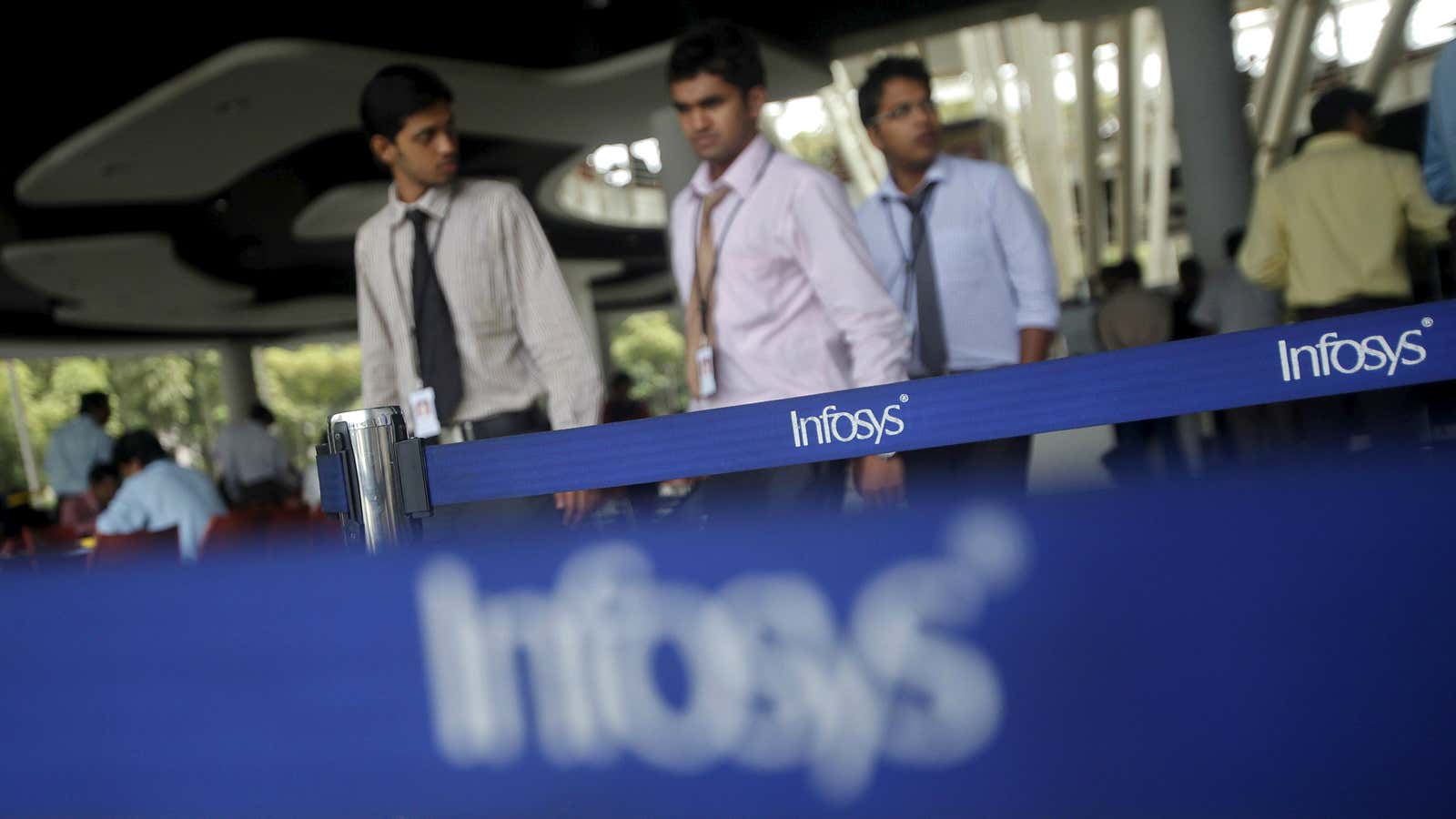Indian engineers could be hurt in more ways than one by US president-elect Donald Trump’s promise to bring back jobs for Americans.
From the early days of his campaign, Trump’s anti-immigrant stance has included plans to cut down on work visas, known as H-1B, that allow skilled foreign workers to work full-time in the US for at least six years. In March, the real estate mogul said, if elected, he would “end forever the use of the H-1B as a cheap labour program, and institute an absolute requirement to hire American workers first for every visa and immigration program.” His attorney general pick, Senator Jeff Sessions, has long advocated clipping the program.
If H-1B visa allocations are limited under a Trump presidency, it would be bad news for Indians who have been the recipients of the highest number (pdf) of such visas all these years. IT bigwigs such as Tata Consultancy Services (TCS), Infosys, and Wipro together accounted for 86,000 new H-1Bs between 2005 and 2014.
“The world over, there’s a lot of protectionism coming in and push back on immigration. Unfortunately, people are confusing immigration with a high-skilled temporary workforce, because we are really a temporary workforce,” Pravin Rao, chief operating officer at Infosys, told Reuters.
With the mood in the US turning against H-1B visa holders, even though they are only temporarily employed there, Indian companies are now considering alternatives, Reuters reported.
Infosys, India’s second-largest IT firm, may for instance “have to accelerate hiring of locals” in the US and “start recruiting freshers from universities there,” Rao said. So may other big Indian IT firms. This will, in turn, reduce their intake of engineering talent at home.
In the process, Indian IT firms would be giving up a huge competitive advantage as employing Indian engineers is 50% more cost-effective than going for western ones, according to The Economist.
The industry is already under pressure following the UK’s decision to exit the European Union: Many IT companies have their EU headquarters in the UK and use it as a gateway for business across the EU. The 800 or so Indian IT companies that have exposure to Britain are grappling with a volatile pound and decisions to relocate employees and offices.
The US visa program is already difficult for foreign nationals. First, they need to find employers willing to pay up to $10,000 for their applications. Then they’re entered into a lottery where their chances are slim—only 65,000 of the 236,000 applicants in 2016 secured a visa. Now, India’s nearly $150-billion IT industry might have to make changes to its mostly Indian employee base, who often travel to the US for temporary projects, to recruit entry-level professionals from the US instead.
Top Indian software firms are also looking to team up with North American companies. For instance, Wipro’s chief financial officer, Jatin Dalal, and Tech Mahindra’s chief executive, CP Gurnani, said they are looking for possible acquisitions of US-based companies.
In addition, with the threat of having fewer engineers to send to the US, some companies are shifting attention to automation and artificial intelligence to provide virtual services. “The AI platform is 5-6% of our revenues,” Infosys CEO Vishal Sikka told Reuters. “Three years ago, it was zero.”
